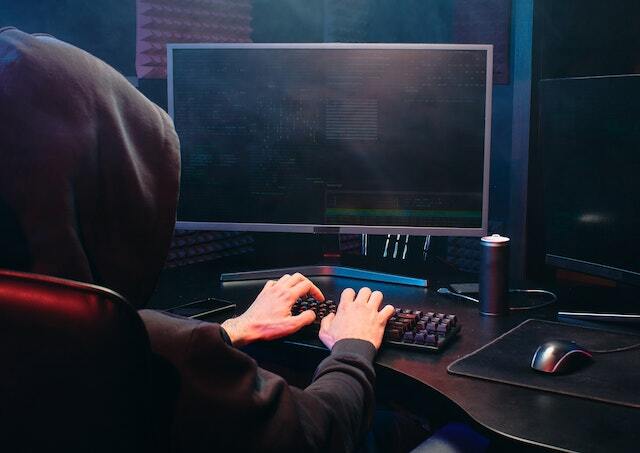Keeping your computer safe is an ongoing process, and it doesn’t just involve worrying about what hackers will try to do next. It also involves finding new ways to keep your computer safe from other users who might be looking to get their hands on your information or any other confidential data you have stored on your PC. The good news is that there are a variety of measures you can take that will decrease the chances of your data being stolen or misused by others. While not everyone knows how to protect your pc, most people should implement some basic security measures until they feel confident they can handle their own information better. This article explains everything you need to know about keeping your system safe from hackers, including what types of hacking are possible, how to stay secure online, and the top ways to keep your computer free from cybercriminals.
What Is Cyber Security?
Cyber security is the ability of a computer system to defend against attacks from other computer systems. While it can’t prevent every threat from taking hold, it can help spot and protect against attacks by limiting access to sensitive data and controlling who has access to your computer systems. It’s important to understand what types of cyber security are available to keep your data safe from hackers and other internet users who might want to get their hands on your information. There are many different categories of cyber security, including information security and information privacy.
Types of Cyber Security
There are many types of cyber security, including information security and information privacy. Information security is the protection of data and data processing systems from external threats such as hacking, malware, and other cyber criminals. Information privacy is the protection of personal data and data processing systems from internal threats such as employees who may try to steal your information or access your computer systems without your knowledge or permission.
The Need for Cyber Security
Cyber security is critical to the health of our entire economy, and it’s important that people who manage or use computers understand how they can keep it safe. If someone is able to get their hands on your confidential information, they could use that information to steal money or financial data, ruin your credit, or cause other problems for you. In order to prevent this from happening, you need to implement cyber security measures to keep your information safe. This includes using encryption tools when you’re online so that someone who gets their hands on your data can’t easily access your information, installing security updates on your computer system that help protect your data, and using a strong password that’s easy to remember but difficult for others to guess.
Don’t Forget about segways and same-day protections!
Cyber criminals often try to steal data from computers that are far from home or from the company’s infrastructure, like those of an employee working from home or a contractor in another country. If your data is on a computer that’s far from home or the company’s computer systems, you should probably consider getting it removed so it can’t be stolen or misused. If you have to leave your computer or device somewhere where others can access it — like in a public place or in your car — make sure someone is always available to monitor it and protect it from getting into the wrong hands. Even if you’re not at a risk of being hacked, having someone monitor your computer and keep an eye out for any signs of tampering makes you feel more secure.
How to Stay Secure Online
Keep your computer system up to date. outdated software can cause problems for your computer system, and new software shouldn’t be shipped without being tested on a computer system first. Install software updates regularly. software updates are always a good idea, no matter how old your computer is. This will help protect your computer system from “dated” software that could be leaving you open to attack. Change your passwords often. accounts with the same password are easy for hackers to crack. Make sure each account has a unique password. Use a virtual private network (VPN) to protect your data. security risks occur when you don’t protect your computer system the way you protect your online identity. Using a virtual private network (VPN) can help you protect your computer system from hackers and other malicious users who might try to access it through your computer system. Use a firewall. firewalls are always a good idea, no matter what type of computer system you’re using. A firewall can help protect your computer system from attacks from other computers on the network and outside hackers who might try to access it through your computer system. Use a good antivirus program. antivirus software can help protect your computer system from malicious software that might be delivered with the operating system or through email attachments. It can also help remove old, outdated software from your computer system that might be causing problems.
Conclusion
Cyber security is a critical issue, and people need to take precautions in order to keep their systems safe. If someone is able to get their hands on your confidential information, they could use that information to steal money or financial data, ruin your credit, or cause other problems for you. In order to prevent this from happening, you need to implement cyber security measures to keep your information safe. This includes using encryption tools when you’re online so that someone who gets their hands on your data can’t easily access your information, installing security updates on your computer system that help protect your data, and using a strong password that’s easy to remember but difficult for others to guess.
